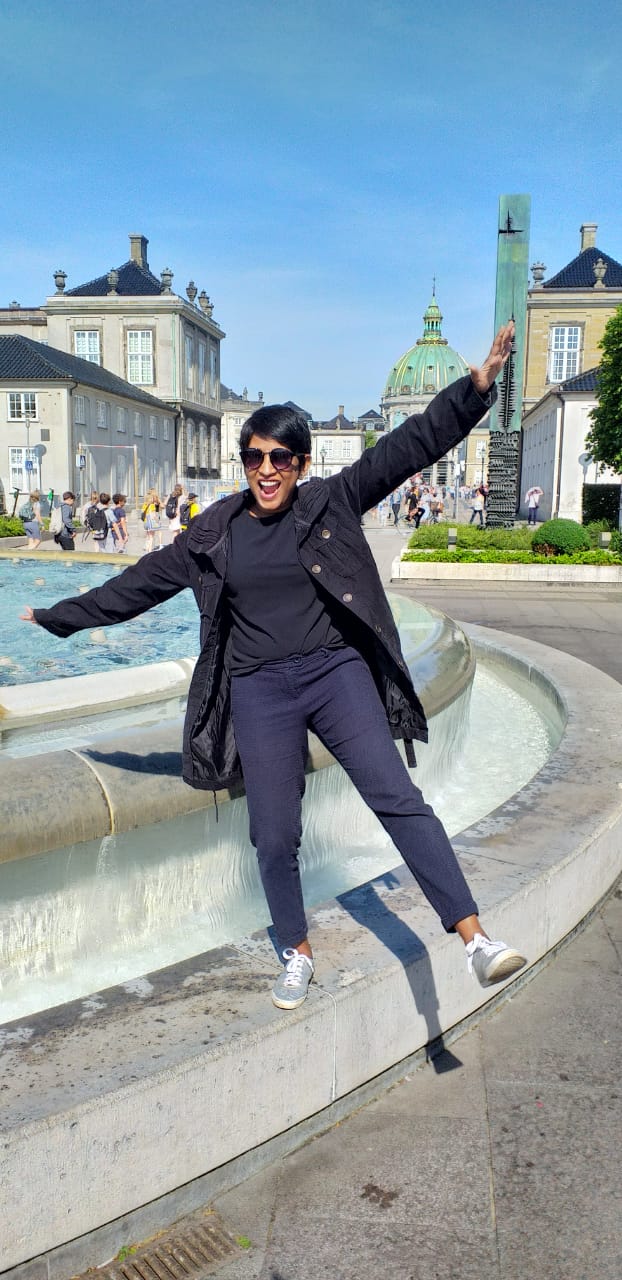With greater freedom and mobility in the workplace today, comes added stressors and potential pitfalls that can lead to consequential burnout. Unsettled is a company that believes the future of work, including remote work and flexible schedules, enables more professional opportunities than ever before. Yet, we are acutely aware of the damaging sides the same technology and work structures behind working remotely, self-employment, and 24/7 access to the office, allow. It all starts with awareness. It is imperative that people who work in a job or industry that have round the clock access to their workplace be aware of their boundaries and work habits before experiencing burnout. Today, burnout is an official medical diagnosis according to the World Health Organization’s handbook, the International Classification of Diseases. As much as we advocate and care about the quality of our professional output, we cannot contribute if we do not take care of ourselves first.
We spoke with Unsettled: Tuscany alum, and financial analyst, Manga, about her experience and what burnout means to her.
 Do you feel this new classification is leaving anything out? Do you think it is useful to have a broad diagnosis for such a prevalent issue in today’s work culture?
Do you feel this new classification is leaving anything out? Do you think it is useful to have a broad diagnosis for such a prevalent issue in today’s work culture?
Burnout at the workplace is a very real thing and has been around for decades, coming in many forms from doing unsatisfactory work to being overworked (in Japan, they call it Karōshi, i.e. worked to death). However, I believe it is only in the recent past that we have come to terms with the fact that it is a serious health concern, both physically and mentally. Yet, I do not believe that a majority of workplaces across the globe understand the seriousness of this issue, with many treating it as an excuse for trying to take work easy or being overdramatic.
ICD-11’s broader definition does capture the essence of it, however, the three dimensions it has noted does not capture the serious health concerns a burnout can cause. From depression, anxiety, loss of appetite to more grave outcomes such as suicide, workplace burnout takes a significant toll on one’s health and life. In a recent article by Forbes on the subject, it was noted that the World Economic Forum estimates burnout’s global price tag to be at 322 billion USD.
Hence, it’s encouraging to see that this phenomenon is finally gaining the attention it needs, and institutions such as the World Health Organization are actively attempting to diagnose the issue. However, much is yet to be done.
What does it feel like to be trapped in your work? How do you know if and when it is happening?
On the onset itself let me note two things; 1) my burnout story is specific to me due to my work and personal conditions, and 2) I love the work I do and work with a fantastic team that always has each other’s backs. However, our team is quite small and individually, we all have a considerable workload. Hence, my personal experience with workplace burnout came mainly from a high level of workload and tight deadlines. However, I must note that my personal work standards also contributed to the burnout eventually. As my close friend at work points out constantly, it was also partly self-abuse. While I have had stressful work conditions in my prior workplaces, I have never had access to my work outside of the office. Hence, to some extent it was easier to shut off. However, in my current workplace, I have access to work 24/7 and there is a tendency to say, ‘just one more hour and I’ll stop’.
Although I have had mini burnouts over the past three years, the first real one was late last year. To give some context to the situation, it was related to a report and an event which was scheduled for mid-November, amidst a ton of other tasks (and I am not exaggerating when I say a ton of other tasks!). The subject matter I was working on was a relatively new area for me, and with the other work which was going on parallelly, I was taking up an enormous amount of time doing just research on the subject matter. Now you must be thinking, ‘erm didn’t you plan for this?’. Oh, I did! But did I mention, a ‘ton’ of other work and about the small team? The burnout slowly began with anxiety which started to last throughout the day. As time ran out, this slowly turned into sporadic panic attacks. With so much work left to do and with very little additional help, I had to put down all pride and ask for an extension. However, on a personal level, this was not helpful as I was constantly feeling as if I had failed, as I barely missed deadlines. Also, as the top rated research team in the business, there are very high expectations from both management and our clients for the work we do and hence, none of this was helping my situation. Therefore, I constantly kept feeling that the one-month extension was not going to be enough to do all the work that was required.
Eventually, I was in a constant state of panic which resulted in terrible sleep patterns and a guaranteed panic attack every single morning till the event and publication in mid-December. I was fully aware of my situation, but I had no escape. Most days it was terrifying and was in constant fear of time running out. I could quit my job any day, but that really wasn’t a solution. Worst of all, I was in constant disdain of a really good job. With little time to spare, I was unable to attend to my usual workout routines and hence, didn’t have an outlet for the stress. My food intake became terrible as I gave into any craving. The panic attacks eventually gave away to a stomach cramp that lasted nearly 1.5 months. It was as if someone was wrenching my intestines constantly, as hard as they could. While I published my report and held the event related to the report in mid-December as planned at the time of the extension, the stomach cramps lasted for another 2-3 weeks. My body had been in a constant state of panic and had decided this was now going to be the norm. It took a considerable amount of self-talk and Christmas cake to get my mind and body to know that it was over.
I eventually went on to have another burnout in February of this year, despite a number of steps I took to avoid one. While it was a much, much shorter one, this time, it took a toll on a close friendship. While nothing was lost at the end, burnouts can take not only a toll on yourself, but also on people around you.
In mid-June this year, I won the silver award for the best sector report at the annual Chartered Financial Analyst (CFA) Sri Lanka Capital Markets Awards 2019, for this very report. While I was narcissistic and thought I should have gotten the gold (it was a darn good report!), at the back of my head, I knew the award came with a price which I should have not ever let myself pay.
What helps you maintain a greater sense of work-life balance?
Soon after my burnout in 2018, I took a number of steps to take back control of my work-life balance, including meditation every morning. While I eventually had a relapse in February this year, I am now more forgiving of myself and understand that there are no quick fixes to this. This will be a work in progress. I also sought out the help of a therapist which aided to a large extent. In my case, my burnout was not merely being overloaded with work, but also personal factors that contributed to the escalation, which need to be dealt with over the long-run. Remember, seeking help does not make you a failure, but shows courage and self awareness that is necessary to move out of these situations.
While work-life balance has always been important to me, given my current job requirements, it has now become a daily decision. With access to work 24/7, I have to make a conscious decision to make time for other aspects in my life be it getting adequate sleep, reading, exercise, family & friends, or even just sitting on the couch and watching Netflix (which I do a lot!). Every single week, I would make plans to workout, read for at least 30 minutes a day, and make time for family and friends. Upon a suggestion of my close friend at work, every Sunday I write something good that happened to me during the week, so I will be reminded to keep a balance for the next week. Also, I took up boxing about a month ago, and now I have less reasons to punch someone during the week! Also, please read, The Subtle Art of Not Giving a F*ck by Mark Manson. It really puts certain things into perspective! Some of these things seem silly or even obvious, but it holds my balance together. As a result, four months down the line, I’m far more easygoing. I’m good at what I do, and I want to do well in my line of work, but it shouldn’t also be the demise of my wellbeing.
And lastly, as morbid as it sounds, I constantly remind myself that if I were to die today, I will be replaced no matter how good an analyst I am. And unfortunately, that is the reality. Companies will and do move on. I have no interest to be remembered just as a fantastic analyst who was good at her job. I’d rather be called that pint-sized crazy ol’ woman with anger issues. In his famous Stanford commencement speech Steve Jobs said ‘‘Remembering that you are going to die is the best way I know to avoid the trap of thinking you have something to lose.” For anyone facing a burnout, especially working for someone else, this is the most important thing to remember; you are replaceable at work, but not to you or for anyone who cares about you.
For further reading on burnout and occupational health, more information can be found at World Health Organization.
Unsettled is a global community for those who live and work differently.
Growth | Meaning | Adventure

0 Comments